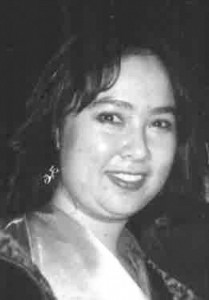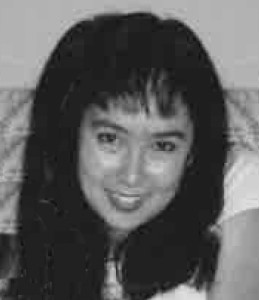It was 14 years ago this summer that I had my surgery for Cushing’s. A lifetime ago. A curious statement, one may say for someone only 36 years old. But for those who have had Cushing’s, we view life as three lifetimes: the person we were born to be, the shadow of who we became and the result that struggles in the aftermath.
The person I was born to be was confident, friendly, intelligent, positive, and exploratory with a spark to test the limits of creativity. Unlike other people, when I reached junior high I couldn’t wait to begin each day. I loved life.
At age 15, something changed. For years I tried to figure it out. I had disappointments and changes like all teenagers, but in contrast to those around me, my progression from junior high through college was a downhill path. I couldn’t remember material I read. I struggled to retain my gifted label by taking on more difficult activities in a never-ending drive to prove myself. Where I had usually been the one to make others feel comfortable I now felt self-conscious. I stopped having real friendships. I kept many acquaintances to create the illusion of connectedness. But in reality I always felt alone. My creative style became mainstream, not because I was maturing, but because I had lost my flair. I often wondered, was this just adolescence?
Physically, I was more than exhausted; my whole body felt like a sinking ship. I could barely walk a flight of stairs and still breathe by the end. It was an odd cross between extreme fatigue and a high that leaves one jittery and unable to rest. I watched in amusement as my hand tremors flipped corn off my spoon and into the air in rhythm while I tried to eat. Sharp pains began persisting through my body leaving me unable to move at embarrassing moments. I often thought I was having a heart attack. My intestines gargled louder than the washing machine. My body was covered in bruises which I laughed off as my clumsiness, although I couldn’t remember what had caused them.
I became concerned about my weight gain so I pushed myself to exercise more, without results. On the other hand, I couldn’t stop eating. Despite eating 7 meals a day and cooking steaks at 2:00 in the morning I felt starved. I looked pregnant and pudgy-faced with stretch marks on my legs, but my body was otherwise thin. Consequently, most people would roll their eyes when I mentioned my concern about my appearance. Still, I felt unattractive. I noticed a slight mustache, a receding hairline and way too much acne for my age.
Nevertheless, there was always an explanation. I had always been concerned about my round Asian face, my belly, and my high forehead. I worked too hard. An overstressed young adult was the general verdict. Regardless, physical, emotional and mental exhaustion became too much for my mind to handle. For me, that was the dominant and all-encompassing problem.
In high school my mind had started into depression and by college it had spiraled into a chaotic tangled mess. It was as if another person had taken control over me – driving constant terror, fear of abandonment, taunts of failure, and hopelessness into my head. I resorted to reciting nursery rhymes to force out the racing thoughts. They prevailed. A combination of irritability, guilt and self-consciousness kept me from interacting with people. I avoided store clerks. I couldn’t make friends – or maybe I just couldn’t trust them enough to feel we were friends. I felt abandoned by peers and family due to the expectation that they would notice and help heal my pain and since they did not I was often crushed and worse off than if I had no one. I wonder sometimes why no one tried to help me, but I guess it isn’t always as obvious to others as it is to the one suffering. Though I didn’t think I had, I must have hid it well. After five years of darkness, I was the only one to recognize the problem and suggest professional help, so I bore myself to therapy, alone.
The counselors and psychiatrists seemed not to realize the extent of the problem either. How could they know the frantic, physical turmoil inside? All they could see was someone crying. And that is very different from physically feeling emotional pain. There was a strong weight of emptiness inside of me. It felt like my heart was being slowly pulled out of my chest. My stomach whirled around and plunged in nervous illness, like the pang one feels at the emotional climax in a sad movie or the moment of terror in a horror movie, just magnified and constant. I had to quit many activities due to the anxiety of sitting in a room of people. Oddly, looking forward to events also debilitated me. My excitement would become an obsession racing away with me uncontrollably, leaving me drained and on edge. I came to realize even enjoying something wasn’t safe.
Worst of all, I had a distinct knowledge that I was no longer living my life – that I was merely a puppet under the control of someone else who now inhabited my body and mind – accompanied by the fear that I would not get it back. I was floating through the space of my body, watching my physical self go through the motions directed by the stranger in my head. Much like the distance one feels when mentally tired, yet awake. I remember walking down the beach and slapping myself in an effort to jolt me back into reality. For a split second I could almost grasp it, then retreated back into the fog.
For over six years I cried every day and every night, awake and eventually in my sleep. It frightens me still to even think about it. My counselors all expected me to pull out some devastating event in my past to get beyond, and since there wasn’t one I couldn’t get anywhere. So with only myself to blame, my mental state got worse. By age 21, there was very little left of who I once was or how I once envisioned life. I hated life. I fantasized about escaping to a distant place, far from everyone. But what I really hated was myself. And I couldn’t escape her. So I found comfort in the aisles of the drug stores with liquor and sleeping pills in my hands – the feel of final relief.
But I didn’t really want to die. I knew it wouldn’t help. I just wanted to sleep for a very long time until whatever this was had passed. I have known depression since then and even my darkest times now can’t scratch the surface of what that was. Despite all the reasonable explanations, I knew that something was biologically wrong. Now I see that where I attributed my physical symptoms to emotional loneliness, anxiety and incompetence, they were actually my body’s reaction to the natural, although untimely, production of stress hormones. Normally, that wave of physical emotion prepares one for action, to fight or escape in times of need. Mine had activated without warrant and was unable to turn off.
Like many of you, it was my mom that finally diagnosed me. After seeing an endocrinologist at a nationally known hospital for acne, it was she who convinced him to test me for Cushing’s. I can still remember vividly the moment the doctor explained the diagnosis to me. The cause was a tumor in my pituitary gland. Many ask, was that depressing to know? Not for Cushing’s patients, I say. We know that those words are the greatest words we can hear – because for the first time in years we again experience hope.
I can’t say that my road to recovery has been easy, but that is another story to tell. My first surgery was not successful and I choose an immediate bilateral adrenalectomy since 1) I could not survive much longer in my current state and 2) the severe mental and physical complications of my first procedure left me terrified of a repeat surgery. Within a year I had lost weight, my energy increased and my gastric pain left, yet my depression lingered. Reprogramming a mind is not an easy task. Many years of psychologically distorted thinking patterns will not disappear in ‘6 months to a year’ even though removal of the initial biological cause, elevated cortisol, does improve one’s mental state greatly. Moreover, I now lived in fear I might feel that way again. Three years passed and I still hung in a void of depression. Then, somewhere in the chaos of recovery, as I lay down one night I made a discovery: I realized I was thinking, well…nothing. It was my first taste of peace in years.
It was the beginning of my new self.
Since then it has taken time and skill building for me to recover. I have had to relearn how to enjoy life and how to interact with people. I’ve acknowledged that the years of elevated cortisol during a period of neurodevelopment may have altered my brain’s emotional responses. I’ve had to accept that some of my cognitive ability may have been lost. Much of my eyesight is lost. And frankly, I have mourned for many years the person I might have been if….For us, we know that sentence ends with the word Cushing’s.
Yet, as I enter my 10th birthday I give you an offering of hope and perspective.
1) Life isn’t perfect. In the midst of my sorrow at what I had lost I saw someone in a wheelchair. I thought, this person had a different life once, too. I realized many people have unforeseen medical problems that bring about life changes. We are not alone. Somehow, it helped me to let go.
2) Accept and enjoy who you are now. Some people will insist that after a year or so of remission life goes back to normal. I insist that it may – or it may not. If you are one of the latter there is nothing more frustrating than thinking you should be back to someone whom you are not. It is hard to accept change, but easier than always looking back.
3) Focus on your accomplishments and possibilities. In writing this I am reminded of how far I have come. Life is so overwhelmingly better now that I am ashamed to say I once again take it for granted – that having the ability to think a peaceful thought for over a second has become trivial. So in your doubts, I hope you find Life can get better. Sometimes it takes work. Sometimes it takes acceptance. Both lead to the same outcome and I hope you can relish the good in life.
I lived a happy life for 15 years. I lived in misery for 10. Now I am working on being content. I may not have everything in common with who I once was, but I have one important commonality: ownership of my Self. We don’t have to keep mourning who we became; we can focus on who we are. Once our shadow has lifted we emerge with choice. Our Cushing’s no longer controls us.
So, happy 10th birthday, Me. Happy birthday to all of you.
I currently work with the Neuroendocrine program at the University of Virginia and am interested in psychology research, life-skills training and creative arts. I’m also a contact for the Cushing’s support group with a focus on both educating and supporting other Cushing’s patients.
Member: 080399
Newsletter: Summer, 2011
State: Virginia








Sorry, comments are closed for this post.